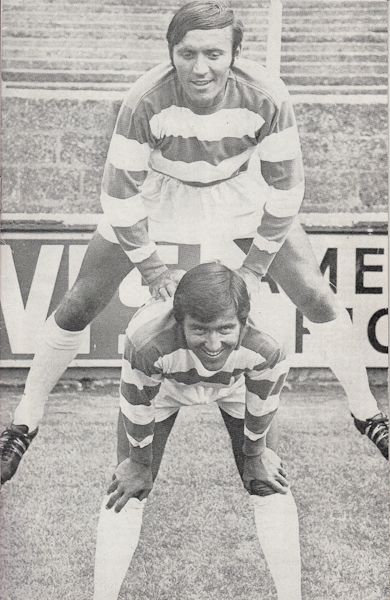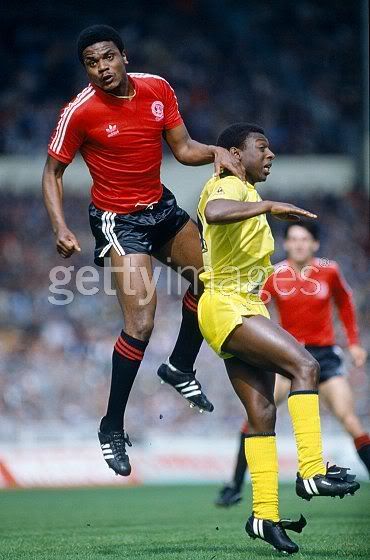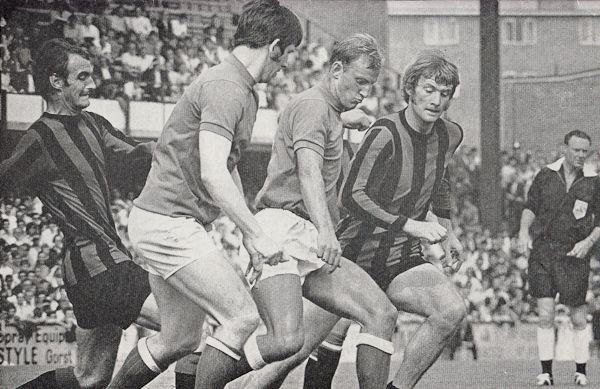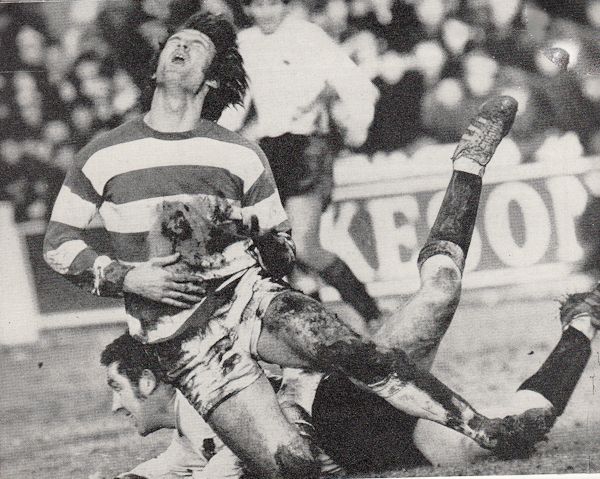-
- Follow QPR REPORT on TWITTER! _______________________________________________
- QPR's 1969-1970 Season in Photos - Bushman Archives
- Guardian Q&A With Neil Warnock
- Year Flashback: Tony Fernandes on New QPR Stadium (Unlikely to GroundShare and re Staying up)
- Year Flashback: Loftus Road Pitch
- Year Ago: Funeral of Dennis Signy
- Six Years Ago: QPR Owners (Paladini and Caliendo) Prepared to Sell QPR
- Flashback: Jim Gregory's Reply to Tommy Docherty
- BBC: Recalling Robert Maxwell's 1983 effort to merge Oxford and Reading into "Thames Valley Royals"
- How German football is embracing Israel
- Guardian/Ian Lynam - In the era of Financial Fair Play clubs must pay smart, not pay more
- Rodney Marsh to Write a column next season for the QPR Official Programme
- QPR Summer Key Dates
- Paulo Sousa Takes over at Maccabi Tel-Aviv
Dave McIntyre... Blog
QPR’s staff list – don’t be fooled
I had a glance at a couple of messageboard threads today and noticed some discussion about the current staff list on the QPR website.
Several people noticed that the list of academy coaches is sizeable - which is in keeping with the new academy structure clubs are encouraged to have.
In comparison, the number of names listed under scouting is small – smaller for example than the club’s media team.
I’ve written about the shortcomings of Rangers’ scouting set-up for many years and those shortcomings still exist, but the number of names listed under scouting isn’t a reflection of the size of the scouting team.
Like most clubs, Rangers have a number of scouts that are involved to differing degrees.
Scouting is a fluid business, with many people in the game used on an informal basis, perhaps while they’re in between jobs. Others work on a more formal and regular basis.
These people work well below the radar and are usually never named by clubs.
I say usually because QPR in fact have tended to publicise the appointment of scouts in recent years in a way other clubs wouldn’t dream of doing.
This is largely because Rangers have been aware of criticism of their almost non-existent scouting set-up and wanted to show they do actually have scouts. Or at least a scout.
So there’s nothing unusual about only the chief scouts or equivalent being listed by the club. That’s pretty standard practice and isn’t the sum total of Rangers’ scouting set-up.
I think the more important thing about that staff list is that Paul Furlong stands out among the academy coaches as being the only former QPR player.
In my view that list should include several ex-Rangers players with an understanding of the club, and I’m afraid the fact that isn’t the case is an indication of what’s wrong at QPR at the moment.
Many will argue the omission of ‘QPR people’, especially away from first-team level, has nothing to do with how the team performs on a Saturday afternoon.
I strongly disagree with that view and have argued for a long time that there is a direct link between the absence of such people – especially in the boardroom – and the shoddy performances we see on the pitch despite the credentials of some under-performing players.
Just as importantly, with many competing for jobs in football, I believe the club should prioritise and look to give a break to guys who’ve served Rangers with distinction. Other clubs do so as a matter of course and QPR used to. If you can’t rely on ‘your’ club to give you a foot in the door, who can you look to?
When Rangers were looking to expand their team of coaches, I asked those involved if they would be keen to recruit former QPR players, and if not why not.
Furlong was already coaching at the club on a non-contract basis and was retained, but straightaway the impression I got was that Rangers were not overly keen on people with a past association with QPR – which is actually typical of recruitment right through the club.
I thought that was a shame, because I know a number of former Rangers players with coaching ability and potential who care about the club deeply and would jump at the chance to work with the youngsters there.
I also thought it was strange in light of the fact that Mike Rigg, who was technical director at the time, spoke privately about the need to develop youngsters with what he called ‘the QPR DNA’.
In my view an opportunity to do exactly that was missed when the club presided over the biggest influx of staff I can recall. I think that’s a real shame. Perhaps others will disagree.
Incidentally, one of those listed under scouting, Kevin Cruickshank, is leaving Rangers to join Mark Hughes at Stoke – a move that has been on the cards for some time.
Understandably given the disastrous signings during Hughes’ time as manager, the story I did today about Cruickshank’s departure was greeted with a few not-so-kind comments on Twitter about him and his contribution during his short time at the club.
In fairness, the role of scouting co-ordinator shouldn’t be confused with that of a chief scout.
The co-ordinator is exactly that. It tends to be a more logistical role, managing a team of scouts and communicating with the manager.
How effective Cruickshank was in the role, I couldn’t tell you. But pinning Rangers’ dismal transfer dealings on the man is a tad harsh! Dave Mcintyre





